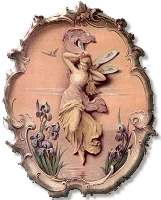
The Victorian Era had an unrealistic and idealized vision of a family which led to and/or exacerbated a great many social ills. Opium use by females was considered “genteel” and “feminine” while public intoxication was deeply frowned upon.
[Note: As I documented earlier, the Victorians were well aware of the many problems associated with opium usage.]
Some went so far as to sterilize those that habitually consumed alcohol. In an 1897 Medico-Legal Society gathering, a Brooklyn doctor recommended women "be desexualized ... whether maid or matron” if they failed to respond to treatment.
[This practice was continued in the eugenics movement which emphasized the sterilization of “the unfit” & was picked up on by the Nazis approx. 33 years later in the 1930s]
The Women's Christian Temperance Movement was a Christian-based group. President Francis Willard, in 1874, began to push for prohibition. Earlier Temperance societies wanted to "temper" those using alcohol to socially accepted levels of alcohol consumption.
Problem: The more Christian women began to get involved in the issue, the more they realized how much women were being physically abused by their alcohol induced spouses leaving scares on their bodies and more.
1888: Dr. Lucy Hall studied 204 women under her care at the Reformatory Prison in Sherborn, Massachusetts. The majority began drinking before the age of 21 & over 1/3 of the married women had scars on their heads as a result of beatings from their drunken husbands.
Francis Willard, a brilliant strategist, pushed for prohibition. It is no coincidence that the 19th Amendment (prohibition) and the 20th Amendment (women's vote) passed within a year of each other. Her group was a major force behind prohibition, banning prostitution, and recreational drugs.
~ from the notes of Lady Victorian Historian



